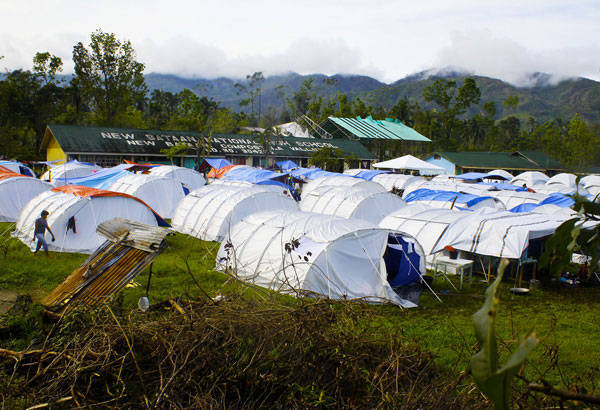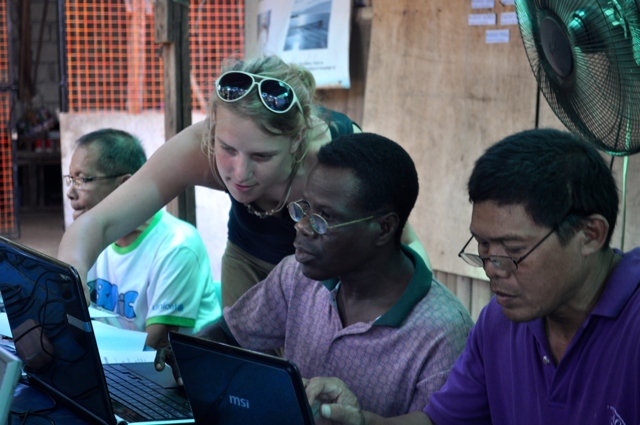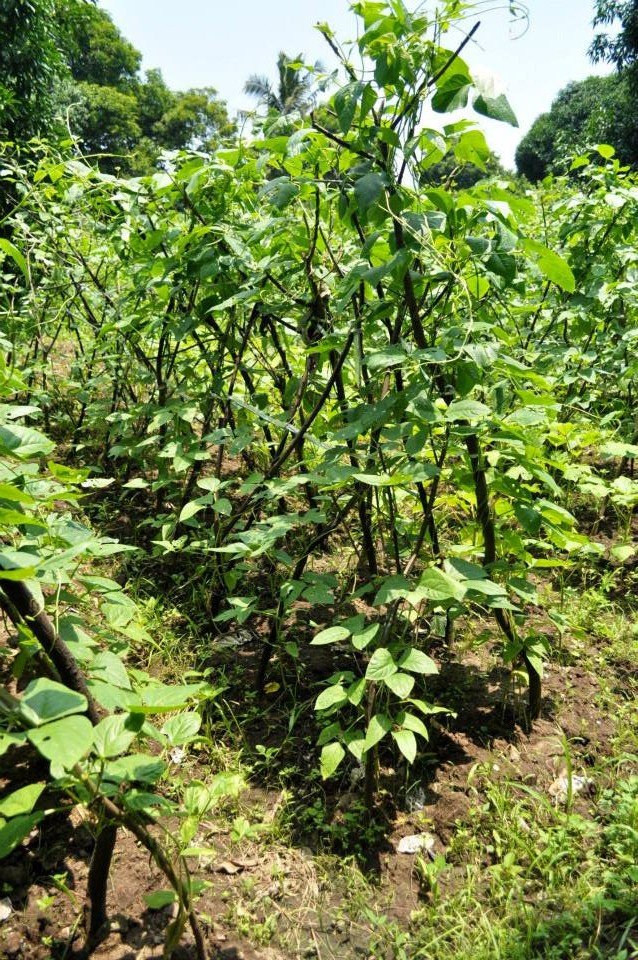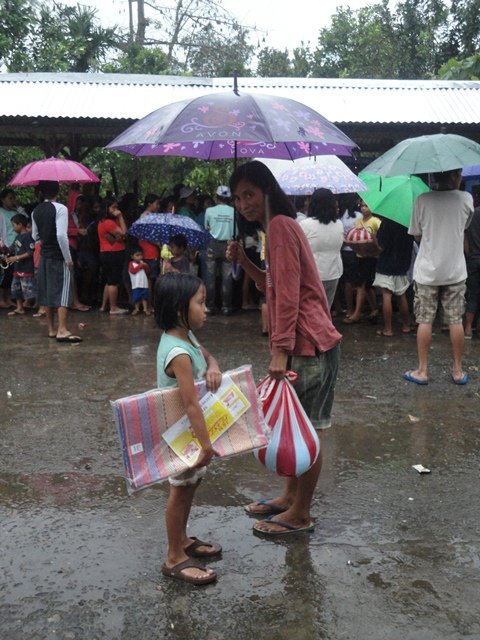By Katrina Wertz | Project Assistant
Dear GlobalGivers,
We have so many updates for you! August 2013 is a milestone because it marks one year since the horrible flood coursed through Manila in the Philippines. Effects of it were so widespread that the local and international NGO communities are still investing themselves heavily into these areas. Following the disaster, GlobalGiving immediately created a Philippine Flood Relief Fund and partnered with a carefully selected handful of organizations on the ground. You heard about what happened in the Philippines and refused to watch mothers and babies and families undergo this loss alone. Thank you for taking care of people all around the world! One of our Field team members, Zamil Akhtar, has spent the past couple of months visiting each of the flood-affected areas and doing evaluations of our partner organizations. At the end of each update, he has provided some firsthand eyewitness comments to how the work is going!
Philippines Secretary of Health Dr. Enrique Ona, MD stated in a letter to Asia America Initiatives that he had heartfelt gratitude for their organization, who is making an immediate difference in the health and lives of Filipino people. Asia America Initiatives used donations from partners to distribute more than $650,000 of medical assistance to thousands of storm and flood victims in Visayas and Mindanao regions. Assisting all age groups from infants to grandparents, the medicines and oral rehydration salts are currently saving the lives of those suffering from high-fever illnesses caused by unclean water supplies and deadly viruses.
Zamil’s Observations: “AAI was one of the most impressive organizations I visited in the Philippines. They have an office in Manila and projects both in Manila and in Mindanao, and work with several local partners. During my office visit, I was impressed with how thoroughly they documented their efforts, with tables and logs of various statistics including how many relief packets they distributed and catalogs of the destruction they witnessed. The team seems dedicated to the work they are doing and have certainly done a lot of good.”
International Disaster Volunteers:
International Disaster Volunteers works so effectively in the Philippines because they partner heavily with a local NGO called Buklod Tao and bring highly qualified individuals from the UK and the West. When the two meet together, great progress is made. Buklod Tao is mainly responsible for the man power behind the projects, from boat building to disaster preparedness to the building of a new evacuation center. EDV help provide the expertise and often some of the funding for these projects.
Zamil’s Updates: “The expertise that EDV provides varies widely. Some of their volunteers are engineers and lawyers who are able to do great things to help the local community with the knowledge that they have. When the local community had to challenge the local government about how the disaster mitigation funds were being used, an EDV volunteer who is a lawyer helped with drafting documents for this cause. An EDV volunteer who is an engineer also helped Buklod Tao design and build a new headquarters for their boat building and sewing facilities.”
EDV and Buklod Tao’s efforts combine to help two-year-old Mae and her mom Melanie, who live in a one room house on the river bank made of tin and plywood. Their home has already been destroyed twice since 2009. She needs you help to ensure she’s safe during floods!
Progressive strides of major importance have been made! De La Salle University and the local Filipino government partnered together to conduct a series of orientation trainings on the salient features of the Disaster Risk Reduction Management Act of 2010. The DRRM is a law that helps flood-prone communities create disaster preparedness plans before the disasters occur, an amazing proactive step in saving the lives of so many Filipinos. Orientation training taught local government units on Relief Delivery Operations and Evacuation Management as well.
Another stride De La Salle made was to introduce the concept of food security in Brgy, Bungahan, a small village (or barangay). Working with the Center for Social Concern and Action, they encouraged the local residents to establish a vegetable garden. A tree planting event was also conducted in Brgy. Native tree species were used and planted along critical areas within Brgy to help prevent the effects of flooding, soil erosion and others.
Zamil’s Observations: De La Salle is a devoted team of social workers who exhibited a high degree of professionalism and organization upon my visit. I was impressed with their integration with the communities they help; upon my visits to these communities, it seemed like the COSCA staff were welcomed as if they were community members themselves. Those I spoke with from these vulnerable communities had only praise and gratitude for the work that COSCA does, and because they were told that GlobalGiving helps fund COSCA, this gratitude was extended to me.
Zamil’s Observations: Peace Winds America has fostered a very valuable partnership with the Citizens Disaster Response Center (CDRC) in the Philippines. They have been around a long time and are well run and effective. Work includes handing out emergency kits and also teaching communities about disaster-resilient farming. Relief packages contain basic foods items which could sustain an average family for one week. It also includes items to help improve the quality of life for the family at the evacuation centers. Rice, beans, fish, soap, blanket, and a mattress are included for the family. Psychosocial support for children is also readily offered.
Disaster relief efforts are divided into two stages: response and development in preparedness. Overall, relief efforts in Manila and surrounding villages have wound down in response and ramped up for preparedness. However, all of the Filipino NGOs agree that this is the hardest to raise money for. For the dangerous flood-prone areas of the Philippines, preparedness includes equipping each village with an evacuation plan. For some, it is to run up the mountain since it is the highest point from the overwhelming water. In other communities, they have focused on building evacuation centers to house 40-50 families. The NGOs have done an amazing job as well with training the people to use their local resources.
The staffers of many of GlobalGiving’s partner organizations are incredibly close to the people that they’re benefiting. The staff lives amongst them. Staff tends to come from the wealthier families, and they are very content to be integrated with the poor and live their lives to serve.
Zamil noticed a unique willingness on behalf of the NGOs to really listen, and not just impose a solution from outside. They worked together with the community in intellectually strategizing, and asked again that they work together in physical execution. For example, the community shared their local knowledge in boat building rather than buying.
As the subject of building boats came up, a new community member emerged with some incredible input. He is a refugee from Mali, and had settled in one of the flood-prone areas around Manila. He came forward in the midst of this collaboration between the NGOs and the community and shared what he had: the knowledge of how to build fiber-glass boats. In most of the Philippines, wood or rubber boats are built, and they are not as good. From a cost standpoint alone, $800 will build a fiber-glass boat versus $1600 for a wood or rubber boat! With new knowledge, now all the people in this community are building fiber-glass boats to prepare for future disasters.
To sum this report up, “One person can make a difference and every person should try.” (JFK)
Let’s keep changing the world!
Katrina
By Gina Herakovic | GlobalGiving Project Team
By Carly Anderson | Project Team Intern
Project reports on GlobalGiving are posted directly to globalgiving.org by Project Leaders as they are completed, generally every 3-4 months. To protect the integrity of these documents, GlobalGiving does not alter them; therefore you may find some language or formatting issues.
If you donate to this project or have donated to this project, you can recieve an email when this project posts a report. You can also subscribe for reports without donating.
When a disaster strikes, recovery efforts led by people who live and work in affected communities are often overlooked and underfunded. GlobalGiving is changing this reality. Since 2004, we've been shifting decision-making power to crises-affected communities through trust-based grantmaking and support.
We make it easy, quick, and safe to support people on the ground who understand needs in their communities better than anyone else.
They were there long before the news cameras arrived, and they’ll be there long after the cameras leave. They know how to make their communities more resilient to future disasters, and they’re already hard at work. GlobalGiving puts donations and grants directly into their hands. Because the status quo—which gives the vast majority of funding to a few large organizations—doesn’t make sense.
Questions about this project? Contact us



